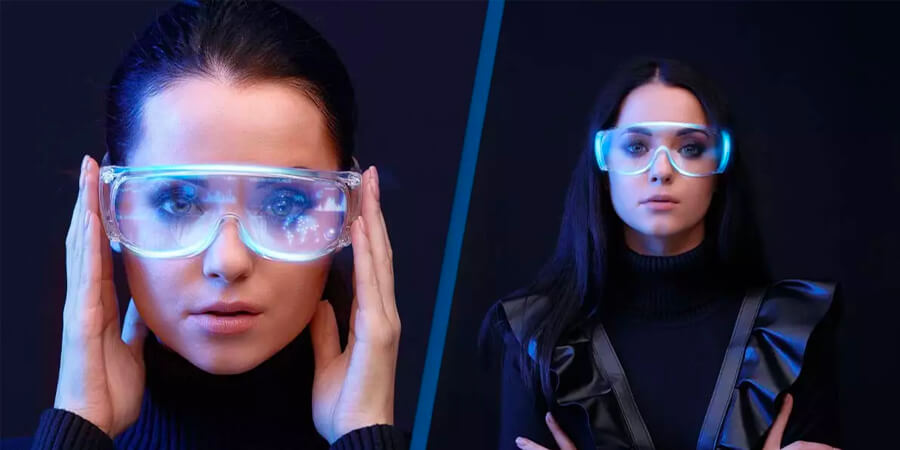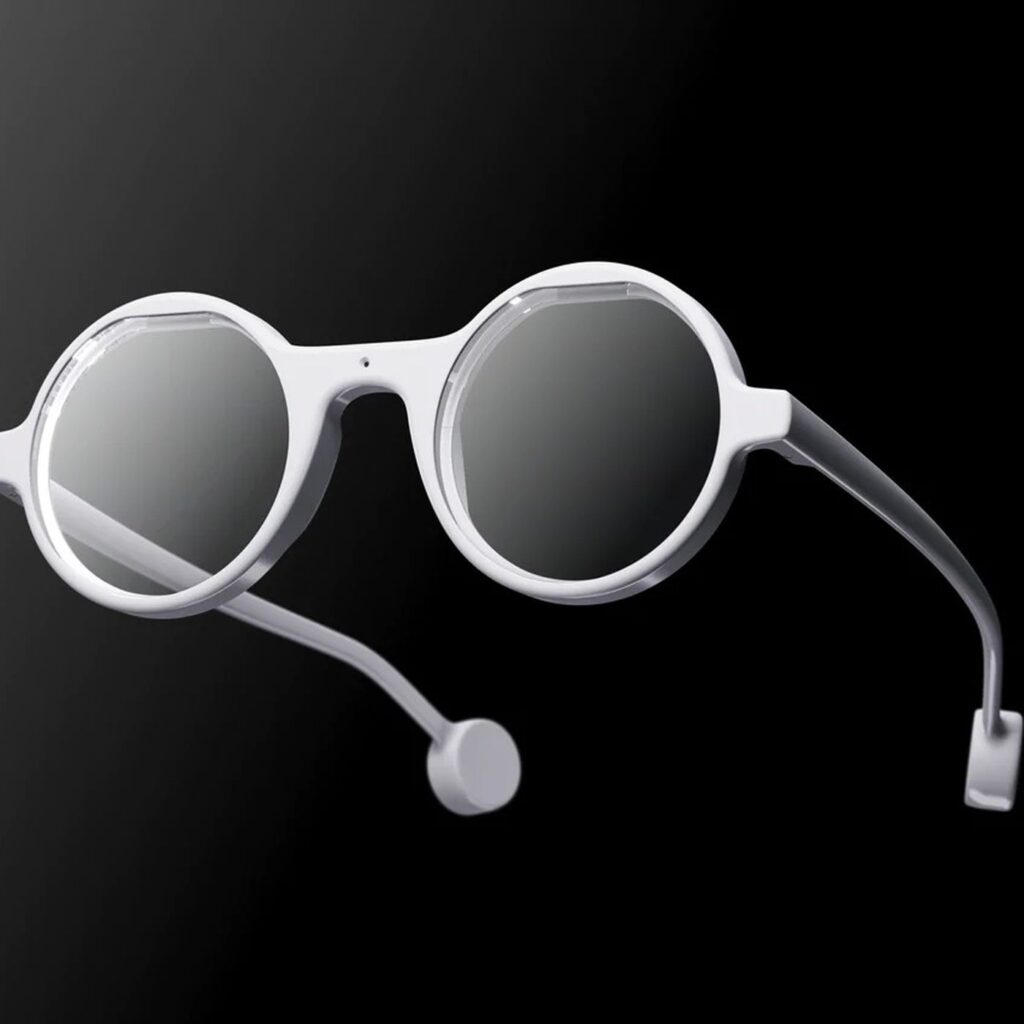AI Glasses are wearable devices that integrate augmented reality and artificial intelligence. They provide real-time data and enhance user experience.
AI Glasses represent a significant leap in wearable technology. These advanced devices blend augmented reality with artificial intelligence to offer real-time information and interactive experiences. Users can access data overlays, navigation assistance, and even facial recognition features. This hands-free technology enhances productivity and convenience, making it a valuable tool in various sectors, including healthcare, education, and entertainment.
As the technology evolves, AI Glasses are expected to become more compact, affordable, and versatile. They pave the way for a future where digital and physical worlds seamlessly merge, offering unprecedented levels of interaction and information access.
Introduction To Ai Glasses
AI Glasses are revolutionizing the way we interact with technology. These smart glasses use artificial intelligence to enhance our daily activities. From navigation to real-time translation, AI Glasses offer endless possibilities.
What Are Ai Glasses?
AI Glasses are wearable devices that incorporate artificial intelligence. They look like regular glasses but have embedded smart features. These glasses can recognize objects, people, and even translate languages. They provide augmented reality experiences, overlaying digital information on the real world.
- Object Recognition
- Language Translation
- Augmented Reality
- Navigation Assistance
AI Glasses are equipped with sensors, cameras, and microprocessors. They connect to your smartphone or the internet to gather and process information. These glasses can help in various fields like healthcare, education, and navigation.
Historical Background
The concept of smart glasses dates back to the early 2000s. Early models like Google Glass introduced the idea but lacked advanced features. The technology has evolved significantly since then.
| Year | Milestone |
|---|---|
| 2013 | Google Glass Launch |
| 2015 | Introduction of Microsoft HoloLens |
| 2020 | Advancements in AI Integration |
Today, AI Glasses are more advanced and user-friendly. They offer a seamless blend of the digital and physical worlds. Companies like Apple, Microsoft, and Facebook are investing heavily in this technology.
Key Features
The key features of AI glasses make them a groundbreaking innovation. These features aim to enhance user experience and provide practical solutions.
Real-time Translation
AI glasses offer real-time translation for multiple languages. This feature helps users communicate across language barriers.
For example:
- Translate spoken words instantly.
- Display translations on the glasses screen.
- Supports various languages.
Augmented Reality Integration
Augmented Reality (AR) integration takes user interaction to the next level. AI glasses overlay digital information onto the real world.
Key aspects of AR integration include:
- Navigation: Get directions with visual cues.
- Entertainment: Play AR games in your surroundings.
- Education: Learn with interactive 3D models.
| Feature | Description |
|---|---|
| Real-time Translation | Translates spoken words instantly and displays on screen. |
| AR Navigation | Provides visual cues for directions. |
| AR Entertainment | Offers interactive games in real-world settings. |
| AR Education | Displays 3D models for learning. |
Technological Components
Technological components in AI glasses are crucial for their functionality. These components integrate seamlessly to deliver an enhanced user experience. Let’s dive into the key aspects that make AI glasses so innovative.
Hardware Elements
AI glasses come with various hardware elements that make them powerful. These elements include:
- Microprocessors: The brain of the glasses, responsible for processing data.
- Sensors: Detect environmental changes and user inputs.
- Cameras: Capture images and videos for analysis.
- Displays: Show information directly in the user’s field of view.
- Batteries: Provide power for all the components.
| Component | Function |
|---|---|
| Microprocessors | Process data |
| Sensors | Detect inputs |
| Cameras | Capture visuals |
| Displays | Show information |
| Batteries | Power components |
Software Capabilities
The software capabilities in AI glasses are equally impressive. They enable the glasses to perform a wide range of tasks. These capabilities include:
- Voice Recognition: Understand and execute voice commands.
- Image Processing: Analyze and interpret visual data.
- Augmented Reality: Overlay digital information on the real world.
- Machine Learning: Improve functionality through user interactions.
- Connectivity: Sync with other devices and the internet.
With these capabilities, AI glasses become more than just eyewear. They transform into powerful, interactive devices that enhance daily life.

Credit: www.zdnet.com
Applications In Daily Life
AI glasses are transforming our everyday activities. They offer various applications that make life easier and more efficient. Let’s explore how AI glasses enhance our daily routines.
Enhanced Navigation
AI glasses provide real-time directions. They help users navigate through busy streets and unfamiliar places. The glasses display visual cues and voice instructions. This feature ensures you never get lost. It is especially useful for travelers and daily commuters.
Here are some key benefits of enhanced navigation:
- Real-time maps and directions
- Turn-by-turn voice instructions
- Alerts for traffic conditions
- Automatic rerouting to avoid delays
Health Monitoring
AI glasses can monitor your health throughout the day. They track heart rate, calories burned, and sleep patterns. These glasses provide real-time health data and insights. This information helps you maintain a healthy lifestyle.
Below is a table showcasing some health monitoring features:
| Feature | Description |
|---|---|
| Heart Rate Monitoring | Tracks your heart rate continuously |
| Calorie Tracking | Calculates calories burned during activities |
| Sleep Analysis | Monitors sleep patterns and quality |
| Activity Reminders | Sends reminders to stay active |
These health monitoring features make AI glasses an essential tool for wellness. Users can easily keep track of their health metrics without any hassle.
Impact On Various Industries
Ai Glasses have revolutionized many industries by enhancing productivity and efficiency. These smart glasses integrate augmented reality and artificial intelligence to provide real-time data and support. Here, we explore their impact on healthcare and education.
Healthcare Innovations
Ai Glasses have transformed healthcare with real-time data and remote support. Doctors can now access patient records instantly during consultations.
- Remote Surgeries: Surgeons can perform operations from a distance.
- Medical Training: Trainees can watch live surgeries with AR overlays.
- Patient Monitoring: Track vital signs and receive alerts immediately.
| Feature | Benefit |
|---|---|
| Real-time Data | Improved Diagnosis |
| Remote Support | Access to Specialists |
Educational Enhancements
Ai Glasses make learning more engaging and interactive for students. Teachers can use augmented reality to explain complex subjects easily.
- Virtual Field Trips: Students can explore historical sites without leaving the classroom.
- Interactive Lessons: Lessons come to life with 3D models and animations.
- Real-time Feedback: Teachers can provide instant feedback on assignments.
These innovations make education more accessible and enjoyable. Ai Glasses help students understand and retain information better.

Credit: www.telecomreviewafrica.com
Challenges And Limitations
While AI glasses promise many benefits, they also face several challenges and limitations. Understanding these obstacles can help us better navigate their implementation and improve their design.
Privacy Concerns
AI glasses can record everything you see. This raises privacy concerns. People around you might not know they are being recorded. This can make them uncomfortable. They might worry about how their data is used.
Data security is another big issue. AI glasses collect a lot of personal data. This data needs to be protected. Hackers could steal this information. This could be very harmful.
Governments might need to create new laws. These laws can help protect people’s privacy. Companies making AI glasses should also be responsible. They need to ensure their products are safe to use.
Technical Barriers
Battery life is a major problem for AI glasses. The technology uses a lot of power. This means the battery doesn’t last long. Users need to recharge their glasses often. This can be very inconvenient.
Processing power is also a challenge. AI glasses need to process a lot of data. This requires strong processors. Strong processors generate heat. This can make the glasses uncomfortable to wear.
Connectivity is another issue. AI glasses need a good internet connection. Without it, many features won’t work. This limits where you can use the glasses.
Here is a table summarizing the technical barriers:
| Barrier | Explanation |
|---|---|
| Battery Life | Frequent recharges needed due to high power usage. |
| Processing Power | Strong processors needed, which generate heat. |
| Connectivity | Requires a stable internet connection for full functionality. |
Future Prospects
The future of AI glasses looks promising. As technology advances, AI glasses will become smarter and more accessible. New features will enhance user experience and productivity. Let’s explore the upcoming innovations and market predictions for AI glasses.
Upcoming Innovations
Several exciting innovations are on the horizon for AI glasses. These advancements will redefine how we interact with our environment.
- Enhanced Augmented Reality (AR): Improved AR capabilities will overlay information more seamlessly.
- Better Battery Life: Future AI glasses will last longer on a single charge.
- Advanced Voice Recognition: Improved voice commands for hands-free operation.
- Health Monitoring: Integration of health sensors to track vital signs.
- Gesture Control: More intuitive gesture-based navigation.
Market Predictions
The market for AI glasses is set to grow rapidly. Analysts predict significant expansion in the coming years.
| Year | Estimated Market Size (in billion USD) |
|---|---|
| 2023 | 1.5 |
| 2025 | 3.2 |
| 2030 | 8.7 |
Several factors will drive this growth:
- Increased Consumer Demand: More people will seek AI glasses for everyday use.
- Technological Advancements: Continuous innovation will make AI glasses more appealing.
- Corporate Adoption: Businesses will use AI glasses for training and remote work.
With these factors in play, AI glasses will soon become a common sight in our daily lives.

Credit: m.youtube.com
Frequently Asked Questions
Is There Any Ai Glasses?
Yes, there are AI glasses available. They offer features like augmented reality, real-time translation, and object recognition.
What Is The Cost Of Ai Glasses?
AI glasses cost varies. Prices typically range from $200 to $1,500, depending on features and brand. Check specific models for exact pricing.
What Can You Do With Meta Ai Glasses?
Meta AI glasses let you capture photos, record videos, and interact with virtual assistants. They offer hands-free navigation, real-time translations, and notifications. Use them for augmented reality experiences and enhanced social media sharing.
Can Ray-ban Smart Glasses Be Prescription?
Yes, Ray-Ban smart glasses can be fitted with prescription lenses. Visit an authorized retailer for customization options.
Conclusion
AI glasses are revolutionizing how we interact with technology. They offer convenience, efficiency, and a futuristic experience. As innovations continue, these smart glasses will become an integral part of our daily lives. Embrace the future with AI glasses and stay ahead in this tech-driven world.
Your enhanced reality awaits.


